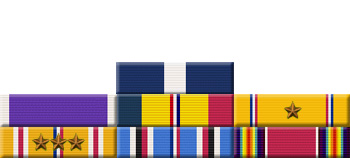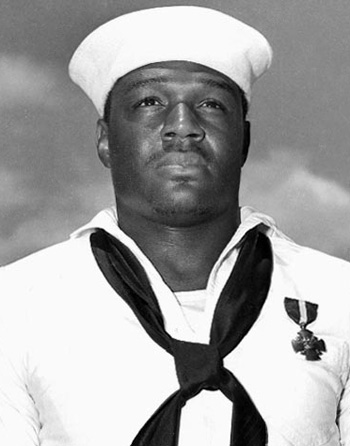
|
Doris Miller |
 |
|||
| Rank, Service | ||||
Petty Officer 1st Class E-6, U.S. Navy |
||||
| Veteran of: | ||||
|
||||
| Tribute: | ||||
Doris Miller was born on October 12, 1919, in Waco, Texas. He enlisted in the U.S. Navy in September 1939, and was trained as a Mess Attendant at the Naval Training Station in Norfolk, Virginia. His first assignment was aboard the ammunition ship USS Pyro (AE-1), where he served until January 1940, when he transferred to the battleship USS West Virginia (BB-48). He briefly served aboard the battleship USS Nevada (BB-36) for Secondary Battery Gunnery School from July 1940 to August 1941 before returning to the West Virginia. Miller was aboard West Virginia when the Japanese attacked Pearl Harbor on December 7, 1941, and he was later awarded the Navy Cross for action on that day. He next served on the cruiser USS Indianapolis (CA-35) and served in the United States on war bond tours until he was transferred to Puget Sound Navy Yard in May 1943. Miller was assigned to the escort carrier USS Liscome Bay (CVE-56) in June 1943 and participated in the Battle of Tarawa before going down with the ship when it was sunk by a Japanese submarine on November 24, 1943. |
||||
|
||||

